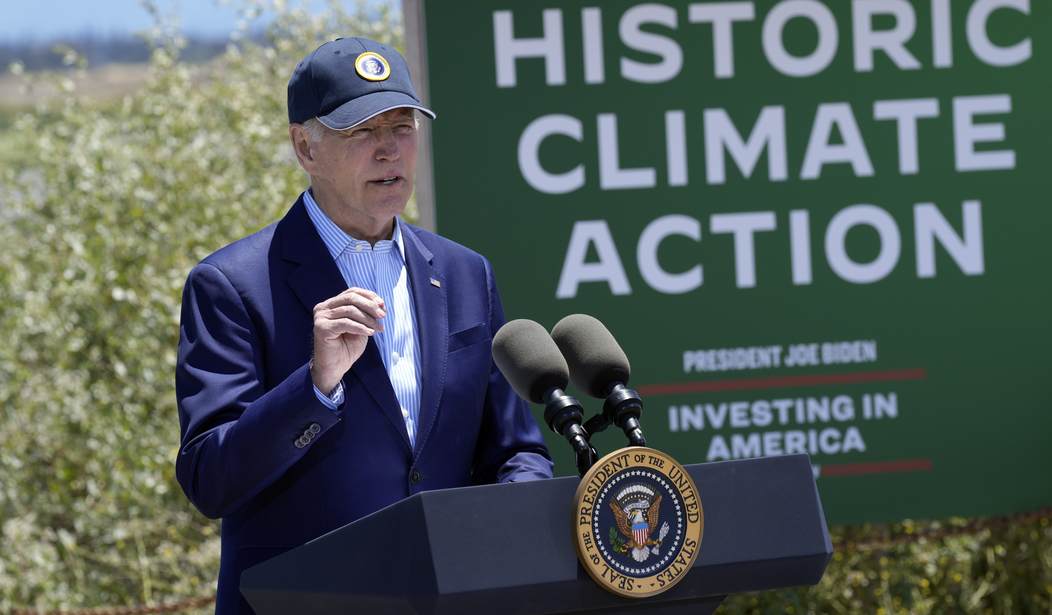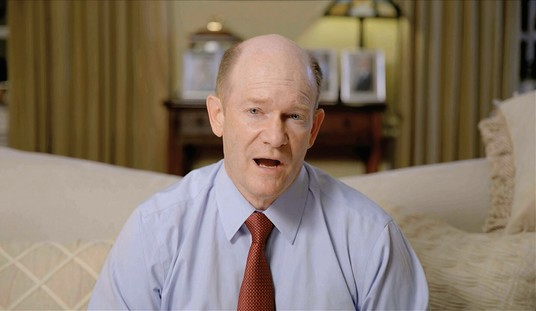Pennsylvania Senator John Fetterman thinks energy won’t be at the forefront of his constituents’ voting decisions this year. But he’s not accounting for the difference between 2020 and 2024 or the clear connection between energy costs, jobs, and inflation.
Inflation, illegal immigration, and crime are key voter concerns in the 2024 elections.
While energy may have had a marginal effect in Pennsylvania’s 2020 election cycle, it has risen in prominence because of its direct (and immutable) connection to higher prices for virtually every product and service and because the Biden-Harris near-four-year war on fossil fuels – leasing, drilling, mining and fracking – is driving up inflation.
A recent survey of 800 registered Pennsylvania voters found that more than two-thirds named inflation as an impediment to maintaining their standard of living.
Yet, by prioritizing a debatable “climate emergency,” the Biden-Harris administration has made energy production much more difficult and costly while injecting 400 billion borrowed Green New Deal dollars into wind, solar, battery, and other “renewable” energy technologies. Add to that the (so-called) Inflation Reduction Act and its billions in new spending on “green” infrastructure. Finally, crushing regulations on the energy industry add fuel to the inflation fire.
Those actions have sent prices higher for everything we make, grow, ship, drive, eat, and wear. The list of products derived from fossil fuels is nearly endless.
Donald Trump will make the opposite argument to Pennsylvania’s voters. Republican Senate candidate Dave McCormick will, too, by attacking incumbent Senator Bob Casey’s support for vast Green New Deal spending and anti-fossil-fuel Biden-Harris energy policies, all of which drive up inflation.
Recommended
Perhaps most importantly, while Bob Casey has been less than vocal on just about everything, he has been the deciding vote for a tiny Senate Democratic majority that has wholeheartedly supported the full range of inflationary Green New Deal, anti-fossil-fuel regulation, and spending.
Casey’s one tepid, politically expedient objection to his Administration’s multi-trillion dollars, fossil-fuel-killing energy agenda was a statement issued by his office – not even a vote – expressing concern about a Biden-Harris ban on new exports of liquefied natural gas, which a court later overturned. That’s it.
The McCormick campaign notes that Pennsylvania gas production has been suppressed by federal policies that impede pipeline construction. McCormick points out that “under Biden’s energy policies, rubber-stamped by Bob Casey, we haven’t been able to access clean natural gas” because pipelines are essential for bringing fracked gas to end users. Casey McCormick emphasizes, “supports policies that are costing us jobs and driving up energy prices even more.”
Contrary to leaks to the press from her campaign staff, Democratic nominee for president Kamala Harris has been enthusiastically vocal about her opposition to fracking and has voted for inflationary Green New Deal spending on numerous occasions.
Compounding the Casey-Biden-Harris effect in the Keystone State is Democrat Governor Josh Shapiro’s support for supposedly “green” energy. His proposals for a $499-million carbon tax and expanding expensive, weather-dependent, unreliable, part-time wind and solar energy would add to the already considerable burdens on families and businesses. No one’s energy needs are part-time!
Claims that wind and solar costs are steadily falling ignore the huge costs (likely many trillions of dollars) of backing up their intermittent electricity generation with expensive coal or gas power plants (or huge banks of wildly expensive batteries) that kick in whenever the wind and sun don’t cooperate with energy needs – which notably happens some 60-70% of every month and year!
Shapiro offers “not just disastrous energy policy” but “expensively disastrous energy policy,” says David Taylor, CEO of the Pennsylvania Manufacturers’ Association, which educates and lobbies on behalf of 550,000 workers in America’s fifth largest manufacturing state.
Indeed, both state and federal policies are to blame for causing many coal-fired plants to close and coal’s share of Pennsylvania electricity generation to drop from more than half to less than one-fifth over the past decade. Pennsylvania’s largest such generator at Homer City closed a year ago, and two more have announced early retirements within a few years. Plans for natural gas power plants have been shelved.
Natural gas now produces more than half of Pennsylvania’s electricity, but gas generation and electricity affordability have also suffered under costly government regulations and the threat of more to come.
All of that adversely affects manufacturing costs, jobs, and the price of goods and services.
In the ten years prior to 2019, when a carbon tax was first proposed, $14 billion worth of gas-fired plants were built in the state, reports Shawn Steffee, a Boilermakers union business agent. However, none have been built since, and two $1-billion proposals were canceled.
“It is highly unlikely that we will build another,” says Steffee.
Whether it’s gas plants not being built or coal plants being closed, both jobs and power grid reliability take a hit. The threat of recurrent blackouts is rising, and we are getting closer than ever to having electricity when it happens to be available, instead of when we need it.
In fact, government and industry overseers of our high-voltage transmission system have warned of energy shortages resulting from ill-timed closures of fossil fuel plants that increase the share of far less reliable wind and solar. Significant regional blackouts across much of the Atlantic Seaboard are not out of the question. They would be deadly amid heat waves and deep freezes.
That would certainly dim the electoral outlook of politicians supporting green energy. Far more important, though, is what it would do to jobs, factories, hospitals, schools, and families.
As for the effect of job losses, one need only read a Washington Examiner account of federal officials meeting with Homer City citizens affected by last year’s plant closing.
“The vast divide between the government’s understanding of the needs of the people they serve and the people themselves was never more excruciatingly apparent than at the meeting,” the article began. It then presented wrenching personal stories of unkept promises to furloughed workers whose lives were “uprooted forever” – and talked about a slide show at the meeting that extolled the “good intentions” of federal agencies.
That seems to be a constant refrain of politicians and bureaucrats. Good intentions drive ill-advised policies that bring the opposite of what their authors claimed would happen.
Donald Trump and Dave McCormick will argue for redirecting federal policies and funding away from the life-changing “green” energy and economic agenda and toward traditional abundant, reliable, and affordable energy.
The House, Senate, and presidency are at stake on November 5, and the deciding votes could well come from Pennsylvania energy consumers.
Don Ritter is a former Republican congressman from Pennsylvania’s Lehigh Valley.
























Join the conversation as a VIP Member